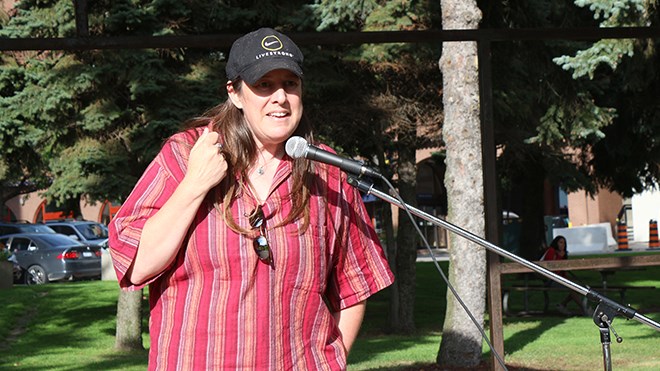“The resources haven't been developed yet in Ontario,” she said.
Fetal alcohol spectrum disorder affects around one in 100 children, although it is more prevalent in some communities. It can lead to lifelong challenges, and it is completely avoidable.
The disorder describes a range of effects that can occur in a person whose mother drank alcohol during pregnancy. The effects may include lifelong physical, mental, behavioural, and learning challenges and disabilities.
Fetal alcohol syndrome, partial fetal alcohol syndrome, and alcohol-related neurodevelopmental disorder all fall under the fetal alcohol spectrum disorder umbrella.
Cheechoo said a big turning point to help children with the disorder in Sudbury was when Health Sciences North partnered with the North East Aboriginal Partnership Project to establish the NEO Kids FASD Clinic in 2011.
The clinic uses a multidisciplinary approach to diagnose children who may fall under fetal alcohol spectrum disorder and refer them to the appropriate interventions.
Thanks to temporary bridge funding, the clinic is able to conduct around eight detailed assessments per month with a team that includes a social worker, nurse, occupational therapist, pediatrician, psychologist and a speech language pathologist.
Kelly Oreskovich, the clinic's social worker, said NEO Kids is trying to get more sustainable funding for the clinic so it can hire a community outreach worker who would make it easier for parents to find the appropriate services for their children after they are diagnosed.
Because the symptoms from fetal alcohol spectrum disorder can vary dramatically, those services might be anything from speech therapy to physical therapy or extra help in school.
While the Sudbury-Manitoulin FASD Network includes a representative from the Rainbow District School Board, Cheechoo said teachers and support staff generally need more training to help students with fetal alcohol spectrum disorder.
Students with the disorder may have behavioural problems or learning disabilities that differ from those teachers might encounter in children with autism.
The network is also working to expand education and outreach initiatives.
“There is no safe amount of alcohol to drink before damage occurs,” Cheechoo said.
Join Sudbury.com+
- Messages
- Post a Listing
- Your Listings
- Your Profile
- Your Subscriptions
- Your Likes
- Your Business
- Support Local News
- Payment History
Sudbury.com+ members
Already a +member?
Not a +member?
Sign up for a Sudbury.com+ account for instant access to upcoming contests, local offers, auctions and so much more.
